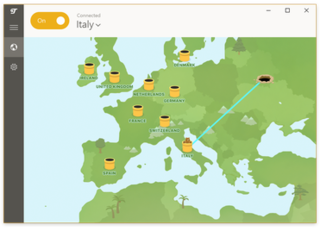 W
WThe Computer Crime and Intellectual Property Section (CCIPS) is a section of the Criminal Division of the U.S. Department of Justice in charge of investigating computer crime and intellectual property crime. They are additionally responsible for prosecuting privacy invasions by criminals such as hackers, cyberstalkers, and purveyors of mobile spyware, and specializing in the search and seizure of digital evidence in computers and on networks.
 W
WCyber sovereignty is a phrase used in the field of Internet governance to describe governments' desire to exercise control over the Internet within their own borders, including political, economic, cultural and technological activities; that is, to extend the concept of sovereignty to include all aspects of the Internet. In his 2015 book Data and Goliath, American security expert Bruce Schneier says the cyber sovereignty movement, in countries such as Russia, China, France and Saudi Arabia, was given an enormous boost by the 2013 revelations of widespread international NSA surveillance, which those countries pointed to as justification for their activities and evidence of U.S. hypocrisy on Internet freedom issues.
 W
WThe Ekoparty is an annual computer security conference that brings together a variety of people interested in information security. The Briefings take place regularly in Buenos Aires, Argentina.
 W
WThe Federal Service for Technical and Export Control is a military agency of the Russian Federation, under the Russian Ministry of Defence. It licenses the export of weapons and dual-use technology items, and is also responsible for Russian military information security.
 W
Whack.lu is a yearly computer security conference held in Luxembourg that brings together a variety of people interested in information security. It's organized by the Computer Incident Response Center Luxembourg (CIRCL), the country's CERT for the private sector, communes and non-governmental entities.
 W
WHandwritten biometric recognition is the process of identifying the author of a given text from the handwriting style. Handwritten biometric recognition belongs to behavioural biometric systems because it is based on something that the user has learned to do.
 W
WThe mission of the Internet Crime Complaint Center, also known as IC3, is to provide the public with a reliable and convenient reporting mechanism to submit information to the Federal Bureau of Investigation (FBI) concerning suspected Internet-facilitated criminal activity and to develop alliances with law enforcement and industry partners. Information is analyzed and disseminated for investigative and intelligence purposes to law enforcement and for public awareness.
 W
WIVPN is a VPN service offered by Privatus Limited based in Gibraltar. Privatus Limited has been independently audited by cure53 and has undergone a no-logging audit and a comprehensive pentest report. They Accept Bitcoin, Monero, and Cash as payment methods and all of their clients are open source as well.
 W
WTunnelBear is a public VPN service based in Toronto, Canada. It was created by Daniel Kaldor and Ryan Dochuk in 2011. In March 2018, TunnelBear was acquired by McAfee.